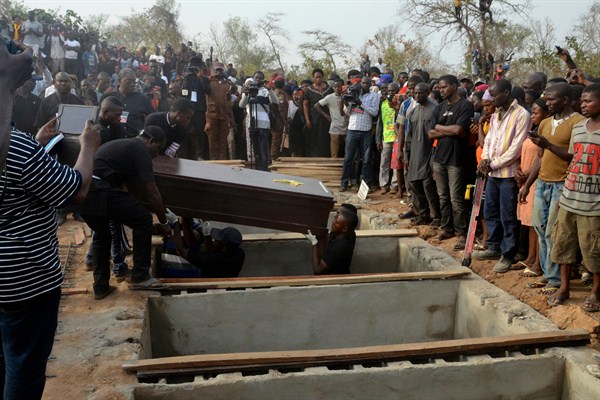Nigeria’s population has quadrupled in the past 60 years, creating a host of pressures on the country’s rural population and pushing farmers and herders into an escalating state of conflict. In 2016 and 2017, four states in Nigeria enacted bans on the open grazing of cattle, aimed at restricting herders and the pastoral communities they support. But the bans haven’t helped reduce violence; over 100 people have already been killed in clashes between farmers and herders this year. In an email interview, Adam Higazi, a research fellow at the University of Amsterdam and an affiliated lecturer at the University of Cambridge, who has carried out several years of fieldwork in Nigeria, discusses the grazing bans and why they fail to address the root causes of Nigeria’s rural conflicts.
WPR: What was behind the decision of four Nigerian states to ban cattle grazing?
Adam Higazi: In short, the anti-grazing laws are a political response to violent conflicts between pastoralists—communities whose livelihood is based primarily on raising livestock—and farmers. But these conflicts are actually multidimensional.

